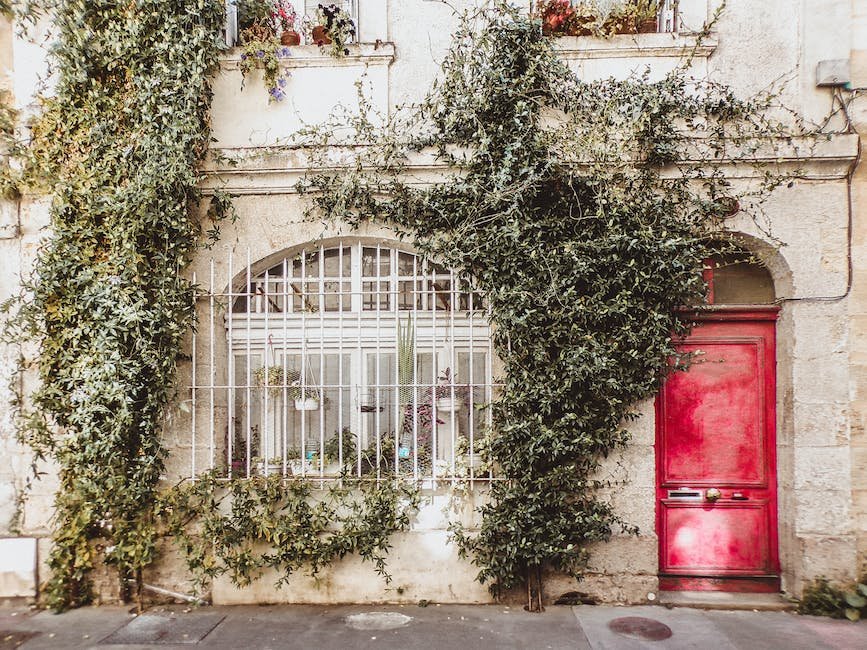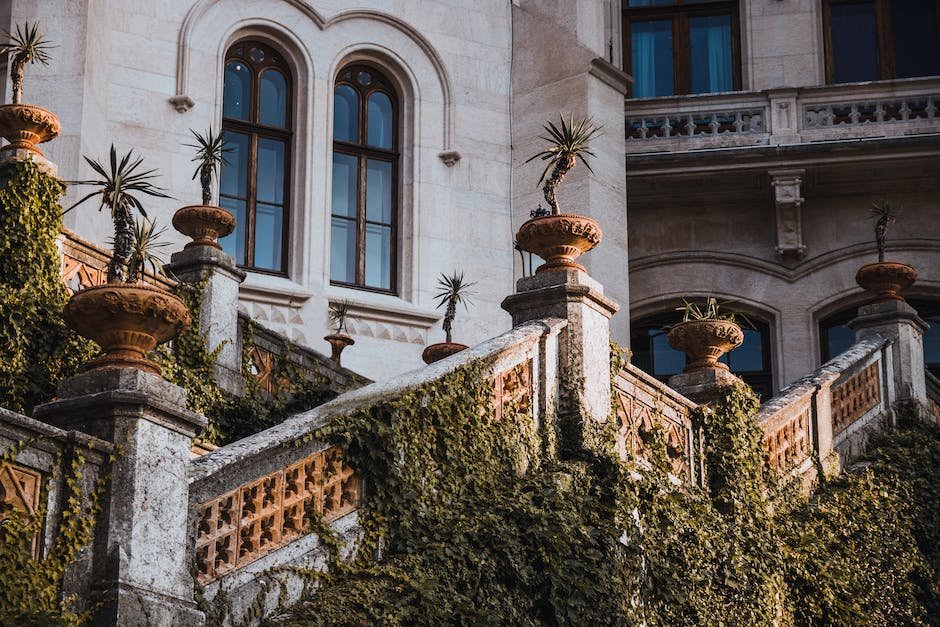Contents
The Algerian Ivy Plant (Hedera algeriensis) is an evergreen climber that is often used as an ornamental plant. It is a member of the Araliaceae family and is native to Algeria. The Algerian Ivy Plant has dark green, glossy leaves that are triangular in shape. The flowers are small and green, and the fruit is a black drupe.
Algerian ivy (Hedera canariensis) is a species of ivy native to the Canary Islands. Algerian ivy is a woody evergreen vine that can grow to lengths of 30 meters (98 ft). The leaves are large, glossy, and dark green, and the stems are brittle and easily broken. Algerian ivy prefers full sun to partial shade and well-drained soil. It is tolerant of salt spray and salt winds. Algerian ivy is often used as an ornamental plant in gardens and landscaping.
Is Algerian ivy indoor or outdoor?
Algerian ivy is a tough plant that can withstand a wide range of conditions, including freezing temperatures. However, if the soil gets frozen solid, it can lead to root rot. To avoid this, grow Algerian ivy in containers that can be moved indoors if necessary.
The Algerian ivy is a beautiful plant that produces lovely flowers in a variety of colors. However, it is important to remember that the fruit and flowers produced by this plant are toxic and should not be consumed. If you have this plant in your home, be sure to keep it out of reach of children and pets.
Does Algerian ivy clean the air
Ivy, English, and Algerian ivy are all excellent choices for container gardens. They are fast-growing, heat-tolerant, and drought-tolerant, making them easy to care for. They also provide interesting foliage color and texture, and can help purify the air.
There are a few different types of ivy that can be kept indoors, but Irish ivy is the most aggressive. Algerian ivy is less aggressive, but is still able to climb without a trellis. Himalayan ivy is also less aggressive and there are some varieties that are compatible with being a houseplant.
What kills Algerian ivy?
The herbicide Glyphosate has been proven to be effective for the removal of invasive Algerian ivy in this study. However, its use is slightly controversial because it is a broad-spectrum herbicide that can kill both desirable and undesirable plants.
Algerian ivy is a climbing vine that is distinguished from other ivies by its 3-lobed leaves, pink to reddish stems, and white flowers. In mature plants, terminal clusters of small, yellowish-green, and inconspicuous flowers appear in fall; blue-black berries appear the following spring. Algerian ivy is an evergreen plant that is native to Algeria and is commonly grown as an ornamental plant in gardens and landscapes.
What happens if you touch common ivy?
If you brush against a poison ivy plant, you may develop a red, itchy rash. The rash often takes a linear form due to the way the plant sweeps across the skin. Poison ivy rash is caused by an allergic reaction to an oily resin called urushiol.
Ivy is a poisonous plant if eaten and can cause an upset stomach. It is also toxic to cats, dogs, and horses, but not to birds or livestock. Children under five are most at risk from plant poisoning.
Is Algerian ivy toxic to dogs
If you have a pet that chews on foliage, avoid philodendrons, pothos, dracaenas, scheffleras, peace lilies and English & Algerian ivy. These plants are toxic to dogs and cats and can cause serious health problems if ingested. If you think your pet has eaten any of these plants, contact your veterinarian immediately.
The Algerian ivy is a beautiful vine that can add color and life to any home. It is important to know, however, that the water needs of the Algerian ivy vary depending on the weather and soil condition. In the early stages of the vine’s growth, you need to water it every day to keep the soil moist. Once the roots establish, you can cut back on watering to once every 2 or 3 days in the hot summer months. By understanding the watering needs of your Algerian ivy, you can ensure that it stays healthy and thrives for years to come.
Is Algerian ivy invasive?
Algerian ivy is a species of ivy that is native to Algeria. It is adaptable to most soil conditions and is often planted as a ground cover to control erosion. This species is considered invasive in some regions and has been cultivated in Britain since 1838.
Cutting or mowing English or Algerian ivy followed by an application of glyphosate to the damaged leaves and cut stem tips can provide effective control. Individuals should wear gloves when performing this task, as many people are sensitive to the dermatitis-causing agents in the plant.
Does Algerian ivy climb
Algerian ivy is a climbing evergreen woody vine with large leaves. It is often used as a groundcover, growing 8-10″ tall, but can be high climbing. Algerian ivy may be grown as a ground cover, but it needs to be confined as it can be weedy and may require considerable pruning to keep in bounds.
Most cultivars of ivy grow best in bright light, but not direct sun They tolerate low to medium light, but growth is reduced and variegated forms may turn all green To maintain the bright color of a variegated ivy, give it plenty of light.
Does ivy do well in bathrooms?
Ivy is a great plant to have in the bathroom because it helps purify the air and prevent mould. It can be difficult to keep the air clean and free of mould in bathrooms because of the moisture, so having a plant like Ivy can be very helpful.
Triclopyr is the active ingredient in many brands of brush killers. It is a systemic, broadleaf plant herbicide that can be used for English ivy control. Apply a 2 to 5% triclopyr solution in the spring as new growth appears (3 to 5 new leaves per vine).
Warp Up
Algerian ivy (Hedera canariensis) is a fast-growing, evergreen vine that can reach up to 50 feet in length. The plant is native to the Canary Islands, but it has been introduced to many other parts of the world. Algerian ivy is often used as an ornamental plant, due to its glossy leaves and attractive flowers.
The Algerian ivy plant is a species of ivy that is native to Algeria. It is a climbing vine that can grow up to 30 feet in length. The leaves of the Algerian ivy plant are oval shaped and have a glossy green appearance. The flowers of the Algerian ivy plant are small and white in color. The fruits of the Algerian ivy plant are black in color and have a hairy surface.

0 Comments